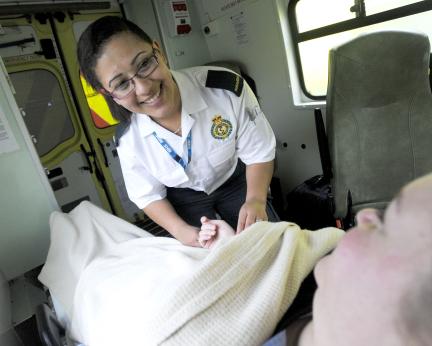My first job after school was urgent call taker in the control centre at Yorkshire Ambulance Service NHS Trust. I handled calls from district nurses, hospital staff, residential and nursing homes, and GPs, and decided on the best type of ambulance response for their patients.
That experience started me thinking about a career as a paramedic and, when I finished my sports studies degree, I got a place on the two-year paramedic science foundation degree programme at Coventry University. During the course, I worked part-time as a first aider at the student union during evening events which gave me fantastic experience of assessing people’s injuries and deciding on the most appropriate ongoing care for them.
I graduated as a paramedic in summer 2013 and started working at West Midlands Ambulance Service University NHS Foundation Trust as a frontline paramedic.
I decided to relocate back to Yorkshire in 2016 and secured a position at Yorkshire Ambulance Service NHS Trust, where I worked as a frontline ambulance paramedic.
I have always had an interest in prehospital research, so just before the pandemic, I secured a role as a research paramedic in the Research and Development team at the trust. The role also means I can still work bank shifts as a frontline paramedic which I continue to be very passionate about.





